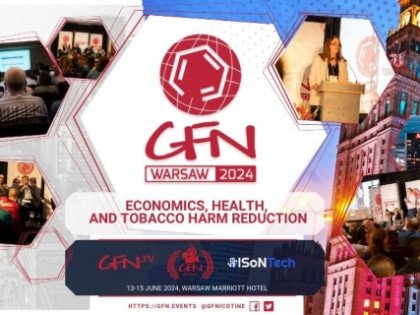Tim McAfee, the Director of the Office on Smoking and Health at the U.S. Centres for Disease Control and Prevention: “While electronic nicotine delivery systems (ENDS) may have the potential to benefit established adult smokers, [they] should not be used by youth and adult non-tobacco users because of the harmful effects of nicotine and other risk exposures.”
While on the subject of the gateway effect, Jean-Francois Etter, professor of Public Health at the University of Geneva said: “Kids like new technology and just experiment or use it once or twice.” He does not subscribe to the Glantz-inspired fear campaign: “They are a gateway out of smoking. They have the same level of nicotine but people are less exposed to toxins; nicotine is not a health problem.”
“The vast number of people using e-cigarettes are using them to stop smoking; they're about sixty percent more effective than going cold turkey or buying nicotine replacement therapy over the counter,” opines Linda Bauld, professor of Health Policy at the University of Stirling.
“E-cigarettes could be a way to help people quit,” suggested Armand Peruga, program manager for the World Health Organisation's (WHO) Tobacco Free Initiative. Surprisingly she added: “The majority of e-cigarettes, especially when they are well regulated, are likely to be less toxic than cigarettes, and that for smokers is an advantage,” although there is little evidence to support the argument for regulation.
Also speaking in Abu Dhabi, Konstantinos Farsalinos spoke about the efficacy of ecigs as a quitting tool: “They (smokers) quit smoking very easily within the first month of the e-cigarette use on average. That’s something you don't see with any other method of smoking cessation."
Unfortunately, Doctor Chan, WHO’s Director General, is less than supportive: “Non-smoking is the norm and e-cigarettes will derail that normality thinking, because it will attract especially young people to take up smoking.” One wonders what ‘especially young people’ entails and why they should be so attracted to smoking because they see ecigs.
In calling Chan’s stance “political”, Etter said: “decrease the numbers of smokers who switch to these new products”, benefits “only the big tobacco industry.”
Farsalinos spoke to the detractors in the Abu Dhabi audience, reaffirming the absence of a gateway effect: “There is not a single case of a never-smoker who used e-cigarettes and then became a smoker of tobacco cigarettes.”
Alan Blum, director of The University of Alabama Centre for the Study of Tobacco and Society has our last word. He spoke about how if one of his patients expressed a desire to quit he’d have no reservations recommending electronic cigarettes, he said he’d much rather advise vaping than: “give a pharmaceutical product which has side effects and which have not worked very well.”
Dave Cross
Journalist at POTVDave is a freelance writer; with articles on music, motorbikes, football, pop-science, vaping and tobacco harm reduction in Sounds, Melody Maker, UBG, AWoL, Bike, When Saturday Comes, Vape News Magazine, and syndicated across the Johnston Press group. He was published in an anthology of “Greatest Football Writing”, but still believes this was a mistake. Dave contributes sketches to comedy shows and used to co-host a radio sketch show. He’s worked with numerous start-ups to develop content for their websites.
Join the discussion
Do It Swedish-Style
Health advocates have urged policymakers to replicate Smoke-Free Sweden by “doing it Swedish-Style”
A Missed Opportunity at COP10
The Smoke Free Sweden movement says that COP10 was a missed opportunity to save millions of lives
Alarm Regarding WHO’s Opacity
The Coalition of Asia Pacific Tobacco Harm Reduction Advocates sounds the alarm on WHO and FCTC's “disturbing lack of transparency”
Come To GFN24!
Everyone is going to be welcome at #GFN24 as organisers say it will be an “antidote” to clandestine WHO COP10 and its meetings behind closed doors






-listing400.jpg)




